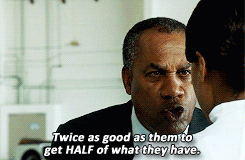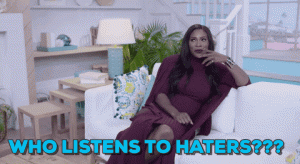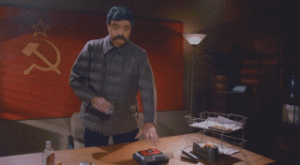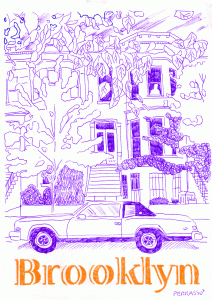Ah, neoliberalism.
According to Investopedia it is: a policy model of social studies and economics that transfers control of economic factors to the private sector from the public sector.
V broad my friends, v broad.
Neoliberalism feels overarching, like it’s far above us, some academic term but it infiltrates every part of our lives. It’s the difference between the way we view the Wall Street banker and the bum on Fulton Street. Neoliberalism is basically the transfer from the public, government sphere to the private, non-profit world of services for the “needy”. It places the blame and glory upon the individual, leaving the affected alone to wither on the vine of society. The individual’s failure and success relies primely on themselves. So success and failure are all yours:

How do I feel about this after 6 weeks of Moxie?
Maybe it is all about the individual? Why not follow this premise to its end…
Well…
Number 1: So my race and gender have nothing to do with my level of success
Number 2: Men, specifically white men, do not rule the world
Number 3: The capitalist, globalized world does not affect me
FALSE.

I reject neoliberalism. Neoliberalism does not account for the essential -isms that pervade the life of the individual, especially things like race and gender and class. After working at BMC for six weeks I know there is more to life than just the individual’s descriptors, it is about the community identifiers attached to the individual. For example, I cannot in good conscience say that I feel my success is my own, because it would erase the good work people I identify with have done. Part of what Moxie has taught me is the importance and prevalence of community in our lives. Nothing is done alone or in separation from our communities.
The rationale of neoliberalism has disproportionately impacted women–in fact, it has oppressed women around the world through the social and economic policies of globalization. In the articles from seminar this week we read about true life examples of globalization (an offshoot of neoliberalism) harming women. Neoliberalism and globalization go hand in hand in increasing the poverty of women around the world, whom bear the brunt of the austere policy decisions. Neoliberalism is the ideology that justifies (for its advocates) the policies and failures of globalization, which ultimately mires itself in capitalist rhetoric and individualist perspective. Globalization has brought Western ideals and ideas to parts of the 2/3rds world. Some Western thoughts include everything from Feminism to the value of the International Monetary Fund. But while the (liberal) feminist idea of empowerment has encouraged women to enter exploitative working conditions, women’s movements around the world have also helped women to unionize and embrace their own versions of feminism.
The upside of all this neoliberalism and neo-individualism is the emergence of new sets of feminists emerging around the world. Neoliberalism is not at odds with the feminist critique of the world directly; however, it views people as individuals with themselves to blame for their successes or failures. It ignores truths and inherent beliefs feminism recognizes like the systemic and structure biases and failures of systems that negatively impact the lives of women. Neoliberalism and globalization have exported the feminist mission to other parts of the world and ignited various discussions about feminism, unions, labor, and women place in the factory and home.
















